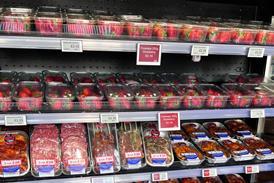We’ve raised the subject of rising credit card costs on forecourts so often that it’s almost embarrassing to do so again. Unfortunately with the almost weekly increase in pump prices the issue becomes ever more pressing. So the question is: can the retail petroleum industry still afford to sell its main product under the existing rules of the credit card game?
Years ago when petrol was selling for the equivalent of around 25p a litre and retailers were achieving gross margins of 2-3p on each of those litres, the prospect of paying the card company 2.5% of the retail price (ie around 0.6p a litre at that time) didn’t seem like a bad deal if it meant more volume. And of course those were the days before the supermarkets had got into the petrol game in a big way. Eventually all of the major oil brands insisted that their company-owned sites and tied dealers offered card facilities to customers as part of their service offering - partly to differentiate themselves from the smaller garages that couldn’t or wouldn’t accept the cards or the costs that were associated with them.
Fast forward 30 years and the merchant charge paid by the retailer will still be a straightforward percentage of the pump price. The rate may even be slightly lower today - 1.75% or 2% would be more realistic for petrol retailing - but if the price of diesel is 112.9p a litre, the card company will be taking either 1.98 or 2.258p out of that litre respectively. And the retailer may now have 2 or 3ppl gross margin to start off with, just like his father had back in 1978. And in 2008 it’s almost impossible to find any forecourt that refuses to accept credit cards. The basic problem is that as far as the credit card organisations are concerned, petrol retail is treated on the same basis as every other retail sector accepting credit cards - you pay a percentage of the retail price. Unfortunately, unlike virtually every other retail sector, petrol retail doesn’t operate on percentage gross margins. In this industry we work in terms of a relatively-fixed ’unit margin’. All things being equal, your Platts-based gross margin in pence per litre is efectively the same whether average pump prices are 90ppl or £1.20pl. While petrol prices may drop back a little in the short term, longer term there’s only one direction in which they’re heading - up! If it’s not OPEC, or the value of the pound, or another refinery going off-line somewhere, it’ll be the government adding more ’green’ tax to the price. Even today, the gross margin is only a tiny percentage of the pump price, and with unit margins remaining static, that percentage will only fall further.
At various times petrol retailers have tried to get out of this bind by adding a surcharge to all credit card transactions but customers and card companies threatened to boycott the sites concerned, and everyone went back to square one. Anyway, ’cash’ itself isn’t a great alternative since handling and banking costs are going up too. In the short term perhaps the most obvious alternative is the debit card. Debit card charges are fixed for each sales transaction, regardless of the retail value of the transaction. The exact charge seems to vary quite considerably depending on which bank you talk to, but typically the range is between 25 and 35 pence per transaction. That fixed charge itself has an implication for the retailer. Obviously if you’re going to be paying 35p to the bank out of each sale, you need to ensure that you’re actually making at least that amount in margin to begin with. If we assume you’re making 3p-a-litre gross then you’ll need to sell at least 12 litres of fuel just to break even - anything below 12 litres and you’ll lose the gross margin entirely in transaction costs.
The point is that long-term pump prices will increase, without any doubt whatsoever. The only questions are ’how much?’ and ’how quickly?’ - meanwhile the current credit card arrangements will simply go on draining more money out of petrol retailing as those pump prices rise.
Unless the historic basis of credit card charges as a percentage of retail fuel price can be scrapped and replaced with a fixed cost per sale, sooner or later the industry as a whole will have to either bring back credit card surcharges or simply stop taking credit cards and accept only debit cards - probably instituting a minimum debit card sale of 20 litres to boot. It’s time to change the rules of the card game!
























No comments yet